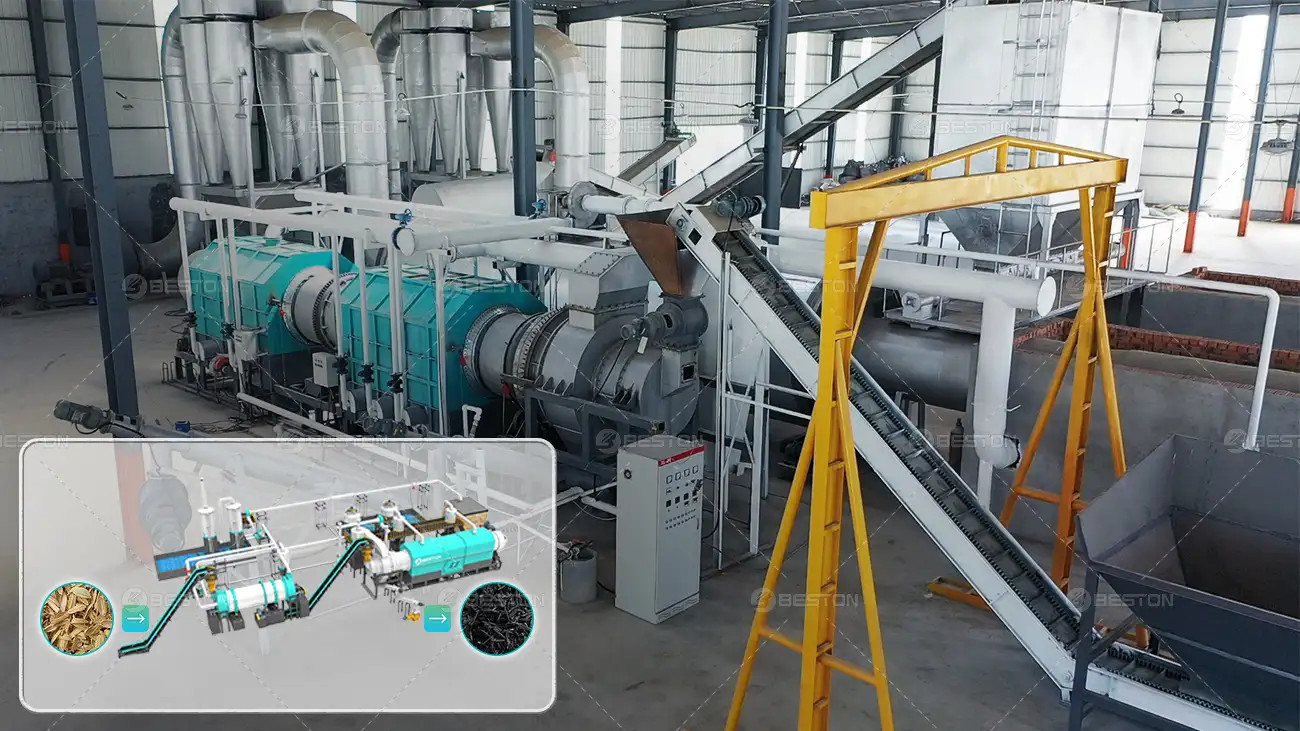The Role of Rice Husk Biochar in Modern Agriculture
Agriculture is at the forefront of addressing many global challenges, including soil degradation, water scarcity, and the need for sustainable farming practices. Amid these challenges, rice husk biochar has emerged as a promising solution. By converting rice husks, a common agricultural byproduct, into biochar through pyrolysis, farmers can enhance soil fertility, improve crop yields, and contribute to a more sustainable agricultural system. This article explores the various applications and benefits of rice husk biochar in agriculture.
What is Rice Husk Biochar?
Rice husk biochar is a form of charcoal produced by heating rice husks in a low-oxygen environment, a process known as pyrolysis. Rice husks, the outer shells of rice grains, are typically discarded as waste after the rice milling process. However, when subjected to pyrolysis, the organic material in rice husks is transformed into biochar, a stable, carbon-rich substance with a porous structure.
The porous nature of rice husk biochar allows it to retain water and nutrients, making it a valuable amendment for soil. It also helps to increase the soil's cation exchange capacity (CEC), which improves its ability to hold and exchange essential nutrients. These properties make rice husk biochar an effective tool for improving soil health and supporting sustainable farming practices.

Enhancing Soil Fertility
One of the primary applications of rice husk biochar in agriculture is improving soil fertility. Rice husk biochar is rich in nutrients, including potassium, phosphorus, and calcium, which are essential for plant growth. When incorporated into soil, rice husk biochar can act as a slow-release fertilizer, providing a long-term source of nutrients for crops.
The high surface area of rice husk biochar also enables it to retain and release water and nutrients more effectively than traditional soil amendments. This is particularly beneficial in regions where soil quality is poor, or in areas affected by drought, as it helps to maintain soil moisture and reduce the need for frequent irrigation.
Moreover, rice husk biochar improves the soil's pH, which can be especially useful in acidic soils. It has been shown to neutralize acidity, creating a more balanced environment for plant roots to thrive. This results in enhanced crop growth and higher yields, contributing to greater food security and agricultural productivity.
Improving Soil Structure and Aeration
Another key benefit of rice husk biochar in agriculture is its ability to improve soil structure. The porous nature of biochar enhances soil aeration, which is essential for promoting healthy root development. Improved soil aeration ensures that plant roots receive adequate oxygen, which is necessary for efficient nutrient uptake and overall plant health.
In compacted or clayey soils, rice husk biochar from biochar production unit helps to break up the soil structure, creating larger pore spaces that facilitate better water infiltration and root penetration. This leads to improved root development, which is particularly important for the growth of deep-rooted crops such as trees and vegetables.
In sandy soils, rice husk biochar helps to increase the soil's water retention capacity, reducing the need for frequent irrigation. This makes it an excellent solution for regions experiencing water scarcity or those where water conservation is a priority.
Reducing Greenhouse Gas Emissions
The application of rice husk biochar in agriculture also contributes to environmental sustainability. Biochar acts as a carbon sink, sequestering carbon in the soil for hundreds to thousands of years. This means that the carbon captured from the atmosphere during the pyrolysis process remains locked in the biochar, reducing the amount of carbon dioxide released into the environment.
In addition, rice husk biochar helps to mitigate the release of greenhouse gases such as methane and nitrous oxide from agricultural soils. These gases are potent contributors to global warming, and by improving soil health, rice husk biochar reduces the conditions under which these gases are produced. For instance, the biochar's ability to retain water and nutrients helps reduce soil compaction, which in turn decreases the likelihood of methane emissions from waterlogged soils.
Enhancing Microbial Activity
Rice husk biochar also plays a vital role in promoting soil microbiota. The porous structure of biochar provides a habitat for beneficial soil microorganisms, including bacteria and fungi, which are essential for nutrient cycling and plant health. These microorganisms help to break down organic matter, making nutrients more available to plants.
Incorporating rice husk biochar into the soil has been shown to increase microbial diversity and activity, leading to healthier soils and more resilient crops. This is particularly beneficial for organic farming systems that rely on natural processes to improve soil health and support plant growth.
Conclusion
Rice husk biochar presents a multifaceted solution for modern agricultural challenges. Its ability to enhance soil fertility, improve soil structure, reduce greenhouse gas emissions, and promote microbial activity makes it a valuable tool for sustainable farming. As a byproduct of rice cultivation, rice husk biochar also provides an eco-friendly way to utilize agricultural waste, reducing the environmental impact of rice farming.
Farmers around the world are increasingly recognizing the potential of rice husk biochar to improve crop yields and enhance soil health. As research into its benefits continues, the widespread adoption of rice husk biochar in agriculture could play a crucial role in addressing food security, environmental sustainability, and the challenges posed by climate change.